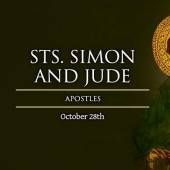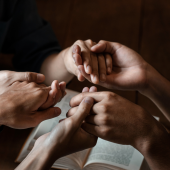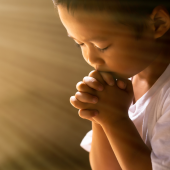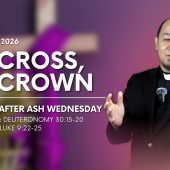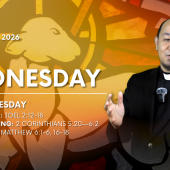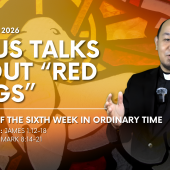Holy Mother Church is the new Temple of God!
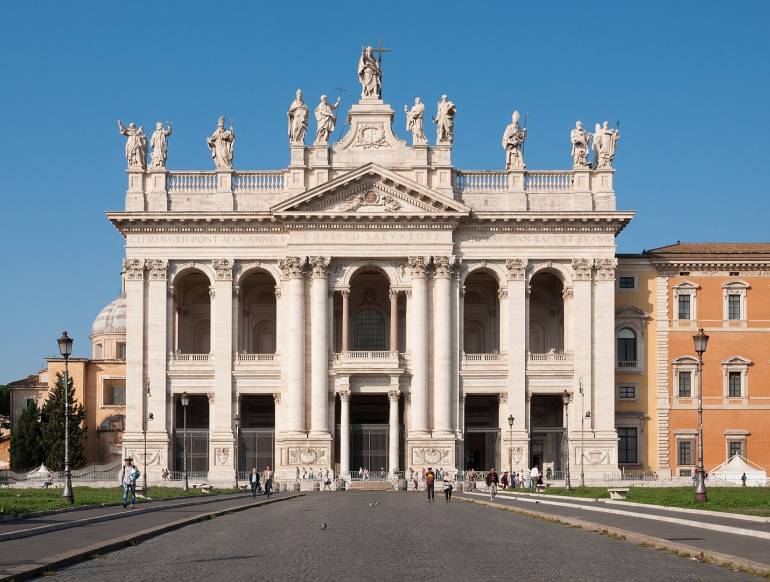
November 09, 2025 Feast of the Dedication of the Lateran Basilica in Rome
Daily Readings: Ezekiel 47:1-2, 8-9, 12; 1 Corinthians 3:9c-11, 16-17; John 2:13-22
In the context of the Feast of the Dedication of the Lateran Basilica in Rome, the readings of this Sunday draw our attention to the relationship of communion between this Basilica, the Cathedral Church of the Bishop of Rome and the Pope of the Universal Church, and other churches around the world. It celebrates the bond between Mother Church and her daughter churches. It also invites all of us to gather around the one Supreme Leader of the Church, Pope Leo XIV. A mother gives life and sustains it through many sacrifices. Holy Mother Church cares for her children, providing spiritual nourishment throughout our earthly life and preparing us for life eternal.
The First Reading is taken from the Book of the Prophet Ezekiel, who sees the vision of a future temple. Water flows from the entrance of the temple toward the east and south of the altar. The river begins as a small spring, and as it continues to flow, it becomes deeper and larger. In fact, this is what happens with the grace of God. Many miraculous events take place because this water is vibrant and life-giving. When it enters the sea, it refreshes stagnant water and brings new life to the fish, which multiply in great numbers. Along both banks of the river, trees grow bearing abundant fruit throughout the year. Their leaves are medicinal and bring healing. For people in exile, this vision offers hope of a new life filled with the grace of God. The water also signifies the Holy Spirit, who cleans, purifies, and makes our offerings acceptable to God. It should remind us of baptismal water, through which a person becomes a child of God and receives a new identity.
The Second Reading, from the First Letter of St. Paul to the Corinthians, presents another powerful imagery. Paul envisions the Church as God’s field and God’s building. Paul and his companions are God’s servants. He is the skilled master builder who laid the foundation, and others continue to build upon it. Every builder, that is, every believer, must be careful about what he or she builds. There is no issue with who contributes to the building, but all must remember that the true foundation is Jesus Christ. This means every believer is a temple of God, and God’s Spirit dwells within. Each one of us is that temple, and it is our duty to maintain its holiness. There is a clear invitation to live a Christ-centred life, since Jesus Christ is the cornerstone. The Church is a community of believers who must respect and honour the temple, not only the physical structure but also the people of God. Therefore, Paul writes, “If anyone destroys God’s temple, God will destroy that person” (1 Corinthians 3:17). Destruction can happen from outside, but also from within. Our challenge is to keep our bodies as worthy temples of God, protecting them from abuses and anything that harms our holiness.
The Gospel Reading from St. John recalls an event that brought Jesus and the Jews face to face, creating a crisis regarding Jesus’ identity and the authority He exercised without fear or hesitation. The Temple of Jerusalem, for Jesus, is a holy place, the house of His Father, meant for prayer. But business people had turned it into a marketplace and a den for robbers. By making it a centre of commerce, they desecrated the holy place. Jesus responds with righteous anger, not desperation, but zeal. He drives them out and orders that the temple be cleansed. His disciples then remember the Scripture: “Zeal for your house will consume me” (Psalm 69:9). The Word of God comes alive in their hearts.
The Jews question Jesus’ authority. Jesus challenges them: “Destroy this temple, and in three days I will raise it up,” referring to Himself. But they misunderstand, thinking He is speaking of the physical temple that took forty-six years to build. The evangelist adds a clarifying note: “He was speaking of the temple of His body” (John 2:21). After the Resurrection, the disciples recalled this and believed both the Scripture and the words Jesus had spoken. St. John uses symbolism consistently, precisely for this purpose.
Jesus further establishes this truth in His conversation with the Samaritan woman (John 4:20–26). When she speaks of worship in different locations, Gerizim for Samaritans and Jerusalem for Jews, Jesus reveals that the time has come when all will worship the Father in Him. He is the true temple. St. Paul, too, teaches the Christians in Corinth that believers are God’s temple and that God’s Spirit dwells within them (1 Corinthians 3:16–17). Therefore, maintaining the holiness of God’s temple is the responsibility of every believer. As someone beautifully said, even if all basilicas and churches were destroyed, God would continue to dwell in our hearts. We are the real temples.
Call to Action: Jesus cleanses the temple and reveals Himself as the true temple. St. Paul calls us temples of the Holy Spirit. Do we not have the responsibility to maintain that holiness, our own holiness?
Radio Veritas Asia (RVA), a media platform of the Catholic Church, aims to share Christ. RVA started in 1969 as a continental Catholic radio station to serve Asian countries in their respective local language, thus earning the tag “the Voice of Asian Christianity.” Responding to the emerging context, RVA embraced media platforms to connect with the global Asian audience via its 21 language websites and various social media platforms.









